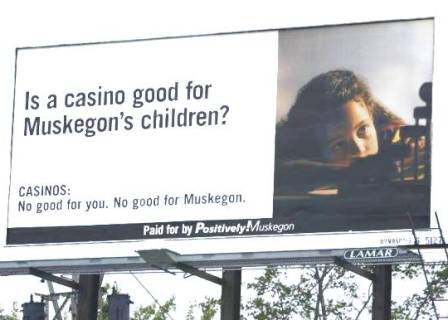National casino vets: Philly heartburn familiar

Oct. 10
By Thomas J. Walsh
For PlanPhilly
In the wake of another boisterous community gathering to protest a proposed casino development, Foxwoods’ new targeted site within a refurbished Gallery at Market East, national gaming industry veterans say they’ve seen worse.
Philadelphia is hardly the first big city to encounter problems with getting casinos built, even after legislation to authorize them has been passed by state assemblies around the country, casino experts say.
“That is not atypical,” said Phil Satre, former top boss at Harrah’s Entertainment Inc. and the current chairman of the National Center for Responsible Gaming. Satre cited new gambling jurisdictions within the past 10 years, such as Illinois and Indiana. City officials tend to fall into two camps, he said – those that oppose casino development for social reasons, and those who feel slighted if their city is not chosen for a casino site.
Satre knows Philadelphia, initially from flying into the city to conduct business in Atlantic City as a young lawyer for the late Bill Harrah in the late 1970s. Only 59, he retired from the company in 2005, around the time it was completing its merger with Caesars Entertainment to create the largest gaming company in the world.
“If you take Illinois as an example, they authorized 10 licenses, and 18 years later, they still haven’t figured out how to deal with the tenth license,” Satre said. “It’s never been issued, it’s never been open, and many citizens feel they’ve lost millions of dollars – and they have, in tax revenues. Many cities [in Illinois] felt they should have had it and didn’t get it, and then it was going to be in downtown Chicago. It’s been a political football at both the gaming regulatory level as well as the state political level.”
“Inherently, urban casinos are more controversial, mainly due to social concerns,” said Bill Eadington, director of the Institute for the Study of Gambling and Commercial Gaming at the University of Nevada, Reno.
The concerns are related to the proximity of low-income people and the critical mass of local residents exposed to potential gambling problems., he said. “The closer you get to a city’s center, the more chance you’ll have these kinds of problems.”
With Foxwoods at The Gallery, you simply could not be more in the center of a city. But partner-owners of the slots hall, joined now by the Nutter administration and the influential Central Philadelphia Development Corp., say the casino would be a relatively small part of the much-needed overhaul of The Gallery – at most 25 percent of the building’s million-plus square feet of leasable space, one partner said this week at the monthly CPDC meeting. The more important role it will play, with its high profile and initial novelty, is to attract local residents and conventioneers to a site that is now woefully underperforming and a large part of the general lack of redevelopment on Market Street from 8th to13th. The area is often referred to as the missing link to Center City’s remarkable turnaround since the opening of the neighboring Pennsylvania Convention Center a dozen years ago.
Chinatown residents aren’t buying it, detailed here by PlanPhilly scribe Kellie Patrick Gates, who witnessed an unruly gathering Thursday evening. The forum was attended by City Councilman Frank DiCicco (The Gallery, and Foxwoods’ original intended waterfront site on Columbus Boulevard, are both in his district), State Rep. Mike O’Brien and Terry Gillen, senior economic advisor to the mayor.
“Urban casinos are still a relative rarity in the United States,” said Eadington, an internationally recognized expert on the legalization of commercial gambling and its regulation. He also writes about economic and social issues related to gaming and has edited several books on the topic.
“In general, the Pennsylvania law can be criticized for a number of reasons,” he said, including major loopholes in the legislation and a perceived lack of regulatory credibility. “They’ve had a lot of embarrassment. This battle just adds a little more egg to the face to those who have pushed the bill and brought it into existence.
“On the other hand, the operators who have gotten up and running [in other parts of Pennsylvania] are doing well.”
Eadington was referring to a half dozen “racinos” (the industry term for horse racing facilities that have added gambling components, usually slots) throughout the state that have added more than 13,000 slot machines. Two more stand-alone casinos have broken ground – a large Las Vegas Sands property two hours north of Philadelphia in Bethlehem, and an $800 million project underway on the banks of the Ohio River in Pittsburgh.
A well-run operation that addresses problems before they arise, Eadington said, can go a long way, in relatively short order, toward achieving peace with its neighbors.
Contact the reporter at tom@thomasjwalsh.info
ON THE WEB:
The National Center for Responsible Gaming: http://www.ncrg.org
Information about Bill Eadington, UNR Web site: http://www.unr.edu/gaming/gamebio.asp
Foxwoods Development Co.: http://www.foxwoods.com/AboutFoxwoods/FoxwoodsDevelopmentCompany.aspx
The Sands Bethlehem: http://www.sandsbethworks.com
“After work stoppage and financial crisis, North Shore parlor back on track”(Oct. 10 article from the Pittsburgh Post-Gazette): http://www.postgazette.com/pg/08284/918852-53.stm
WHYY is your source for fact-based, in-depth journalism and information. As a nonprofit organization, we rely on financial support from readers like you. Please give today.



